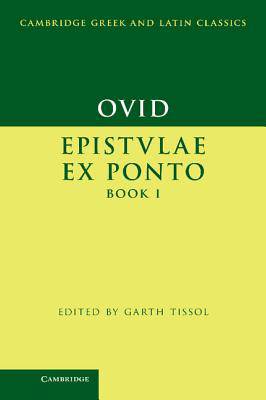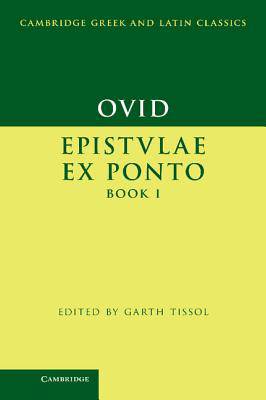
Je cadeautjes zeker op tijd in huis hebben voor de feestdagen? Kom langs in onze winkels en vind het perfecte geschenk!
- Afhalen na 1 uur in een winkel met voorraad
- Gratis thuislevering in België vanaf € 30
- Ruim aanbod met 7 miljoen producten
Je cadeautjes zeker op tijd in huis hebben voor de feestdagen? Kom langs in onze winkels en vind het perfecte geschenk!
- Afhalen na 1 uur in een winkel met voorraad
- Gratis thuislevering in België vanaf € 30
- Ruim aanbod met 7 miljoen producten
Zoeken
€ 188,95
+ 377 punten
Uitvoering
Omschrijving
When Ovid, already renowned for his love poetry, the Metamorphoses and other works, was exiled by Augustus to Tomis on the Black Sea in AD 8, he continued to write. After five books of Tristia, he composed a collection of verse letters, the Epistulae ex Ponto, in which he appeals to his friends and supporters in Rome, lamenting his lot and begging for their help in mitigating it. In these epistolary elegies his inventiveness flourishes no less than before and his imaginative self-fashioning is as ingenious and engaging as ever, although in a minor key. This commentary on Book I assists intermediate and advanced students in understanding Ovid's language and style, while guiding them in the appreciation of his poetic art. The introduction examines the literary background of the Epistulae ex Ponto, their relation to Ovid's earlier works, and their special interest and appeal to readers of Augustan poetry.
Specificaties
Betrokkenen
- Auteur(s):
- Uitgeverij:
Inhoud
- Aantal bladzijden:
- 202
- Taal:
- Engels
- Reeks:
Eigenschappen
- Productcode (EAN):
- 9780521819589
- Verschijningsdatum:
- 20/03/2014
- Uitvoering:
- Hardcover
- Formaat:
- Genaaid
- Afmetingen:
- 137 mm x 218 mm
- Gewicht:
- 408 g

Alleen bij Standaard Boekhandel
+ 377 punten op je klantenkaart van Standaard Boekhandel
Beoordelingen
We publiceren alleen reviews die voldoen aan de voorwaarden voor reviews. Bekijk onze voorwaarden voor reviews.









